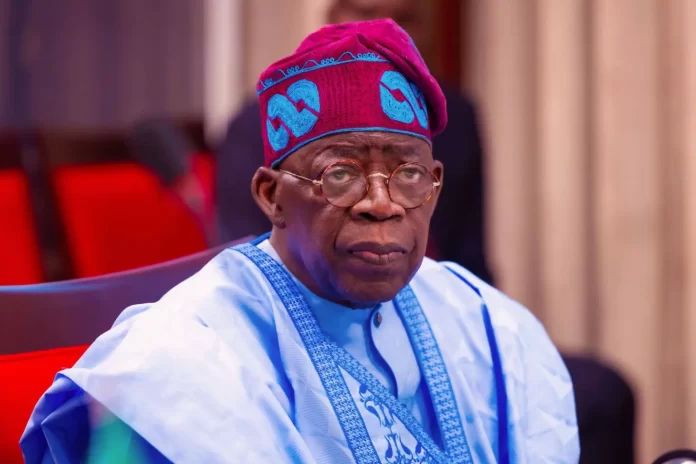More than two years into President Bola Tinubu’s administration, Nigeria’s economy stands at a crossroads of resilience and hardship. Since May 2023, sweeping reforms, including the abrupt removal of fuel subsidies, naira devaluation, and foreign exchange liberalization, have ignited a fierce debate. Official figures paint a picture of stabilization and structural shifts, with GDP growth accelerating and non-oil sectors surging. Yet, economists warn that skyrocketing inflation and deepening poverty are eroding these gains, leaving millions in a precarious bind.
The administration’s defenders, led by voices in the presidency, hail the changes as a long-overdue pivot toward sustainability. Critics, however, decry the reforms as “botched” and insensitive, arguing they have plunged households into crisis without adequate safeguards.
Government officials point to tangible progress in diversifying the economy away from its traditional oil reliance. In a recent op-ed, Tope Fasua, Special Adviser to the President on Economic Matters, outlined 12 structural transformations that, he argues, signal a “renewed hope” for Nigeria’s future. These changes, Fasua contends, stem directly from Tinubu’s reforms and are fostering local production, export growth, and infrastructure booms.
Key highlights from Fasua’s analysis include:
1 Reduced Oil Dominance – Oil and gas now contribute only 3% to GDP, with the rest driven by non-oil sectors.
2 Export and Import Shifts – 30% increase in non-oil exports and 30% reduction in overall imports, boosting trade balance.
3 Entertainment Sector Boost – Better data capture of the youth-driven industry, enhancing its economic footprint.
4 Local Manufacturing Surge – Higher production volumes fueled by a weaker naira and fewer imports.
5 Value Addition Focus – Processing raw materials now a core economic driver, reducing waste.
6 Regional Manufacturing Exports -Increased shipments of FMCGs and even cars across West Africa.
7 Refined Petroleum Pivot – Nigeria now a net exporter of refined products to the US, Saudi Arabia, and UAE; importing crude to feed local refineries like Dangote’s.
8 End of Fuel Queues – Local refining eases shortages, stabilizing supply.
9 Infrastructure Explosion – State-level roads, bridges, and solar power, complemented by federal investments to combat poverty.
10 Salary Hikes and Relief – Higher wages in public and private sectors mitigate inflation; tax reliefs slated for January 1, 2026.
11 Non-Oil Export Incentives – Cheaper naira aids cocoa, cashew, and soybean sales—Cocoa alone fetched N4 trillion in 2024, with more expected in 2025.
12 Agricultural Revival and Stability – “Return to the land” boosts palm oil, cocoa, and more; stable naira aids planning, reverses forex outflows, attracts foreign schools (e.g., Charterhouse, King’s College), curbs “Japa” for master’s degrees, and supports reserves at $42 billion.
Read Also:
- APC hits back at Peter Obi, says Tinubu’s borrowing plan strategic, not reckless
- Tinubu holds private discussions with French President Macron
- Tinubu’s lawyers seek to block disclosure of FBI, DEA records
These assertions align with macroeconomic data. Nigeria’s GDP grew 2.9% in 2023, rebounding to 3.4% in 2024, the highest since 2014, excluding COVID rebounds, and is projected at 3.6% for 2025. The fiscal deficit narrowed from 5.4% of GDP in 2023 to 3% in 2024, driven by revenue jumps from N16.8 trillion to N31.9 trillion. Foreign reserves climbed from $32.9 billion at year-end 2023 to over $40 billion by mid-2025, covering 8-12 months of imports. The naira’s stabilization post-devaluation has curbed illicit outflows, while Dangote Refinery’s operations have ended chronic fuel queues and positioned Nigeria as a refined products exporter.
President Tinubu’s team emphasizes that these reforms avert a fiscal collapse, with IMF officials noting in July 2025 that they have “improved macroeconomic stability and enhanced resilience.” The World Bank echoes this, crediting the “bold and courageous” moves for modest growth and investor confidence, including a Eurobond tap and credit rating upgrade.
Despite these strides, the reforms’ short-term pains have fueled widespread discontent. Inflation, which hit 31% in 2024, eased to 23.7% by April 2025 but remains “sticky” at over 23%, with food prices up nearly 500% for petrol, a major culprit. Poverty has surged to 46% of the population (104 million people), the world’s second-largest after India, exacerbating food insecurity and multidimensional poverty at 63%.
Top economists have lambasted the implementation as flawed and callous. Bismarck Rewane, CEO of Financial Derivatives Company, argues the subsidy removal and devaluation, without robust safety nets have “plunged the country into crisis,” sparking protests and eroding trust. “The policies have suffered from flawed implementation because the government did not put in place safety valves before taking the decisions,” says Nnaemeka Onyeka Obiaraeri, a development economist.
Doyin Salami, a former Central Bank adviser, warns that while growth is steady, per-capita terms lag, with job creation too weak to absorb 3.5 million annual entrants into the labor market. “Nigeria’s economy in 2025 doesn’t look bright,” asserts Akinwumi Adesina, African Development Bank President, highlighting sluggish global ties and high borrowing costs (30-year bonds at 10.58%). The IMF projects medium-term growth at just 3.5%, far below the 5% needed for a $1 trillion economy by 2030.
Critics like Ndubuisi Ekekwe point to “unprecedented cost-of-living crises” from tariff hikes (e.g., 230% electricity increase) and warn of fragility from insecurity, floods, and climate risks. On X (formerly Twitter), users echo this: “Has Tinubu improved the Nigeria economy since 2023? All indices said NO,” one post lamented, amid debates comparing Nigeria unfavorably to Ghana’s steadier path under President Mahama.
Nigeria’s reforms have undeniably laid groundwork for diversification, with non-oil sectors like agriculture (22% of Q4 2024 GDP) and services driving momentum. Yet, as the World Bank urges, sustaining tight monetary policy while ramping up spending on human capital, infrastructure, and social protection is crucial to make growth inclusive.
As 2025 unfolds, the litmus test will be whether these structural wins translate to tangible relief. For now, Tinubu’s “Renewed Hope” agenda divides: a beacon for reformers, a burden for the vulnerable. With elections looming in 2027, may be taken to alleviate the suffering of the most vulnerables..






